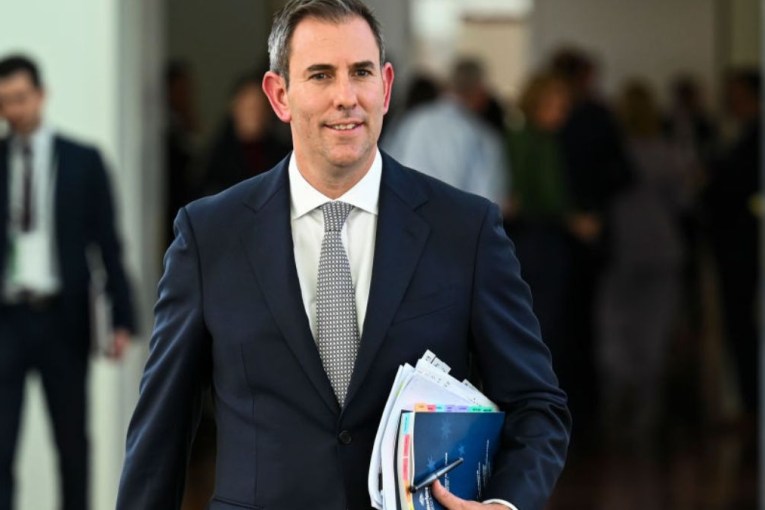Ask the Expert: Financial planning – how expert advice can get you started on building wealth


Cash flow and then investing surplus funds are the cornerstones of wealth creation. Photo: Getty
Question 1
Hi Craig, I have proceeds from the sale of my house that I’d like to invest in shares. I already have a small amount of funds in AFI and some random ETFs. My knowledge of, interest in and available time to research investment options is low. I’ve been to financial planners who want me to invest in wraps and platforms, which seem to make admin easier for them and charge multiple fees.
I’ve considered a broker who charges per trade for advice and to make the trade, but I will need to do the admin. Can you explain what this admin burden is and why it warrants approx. $2k per year for planners to do? I would most likely want to purchase shares/ETFs to keep long term and not actively trade so question the need to pay high planners fees, but don’t know if I’m being too confident and I don’t know what I don’t know.
I know of my risk appetite from when my super was reviewed by my fund a few years ago. I’m unsure where to get any independent advice from and so am now looking to you for assistance please. Thank you.
You have touched on a number of issues.
It’s great to see you take an interest in savings and investing while acknowledging you don’t necessarily have the time and skills in order to keep doing this well.
At a high level, cashflow and then investing surplus funds is the cornerstone of wealth creation.
Drilling down, you seem to want to know: Are financial planners worth it and what admin is involved for yourself to use an investment platform?
Firstly, financial planners. A good financial planner can make a big difference to someone’s financial affairs. They can, among other things, assist with:
- Help you set your financial goals. This includes setting a budget, targeting specific wealth-creation goals, insurance needs, estate planning, retirement age and income
- Structure your investments in an appropriate and tax-efficient way, i.e. in super, in joint names etc.
- Prioritise goals, i.e. pay down debt versus investing or saving for children’s education etc.
- Help motivate you and keep you financially disciplined
- Provide advice over unplanned events, i.e. redundancy, injury, inheritance.
Now, whether or not you need an ongoing relationship with a planner is a different matter.
You may find having an initial financial plan drawn up is all you need, as long as you stay disciplined, and you are clear on how to meet your goals.
Others with more complicated or changing circumstances may benefit from a formal ongoing advice service. But don’t feel pressured to sign up to an ongoing agreement unless you see the benefits.
Moneysmart has a good overview of the different types or services offered and what you should look for. I suggest talking to a few planners to you find a good match for yourself, this includes them having a service model that suits you, and not just them.
You can also use the Financial Advice Association of Australia (FAA) find a planner tool.
Next – administration platforms.
You are correct in that some planners like to use them because it is easier for them. However, they do offer many advantages that you will find beneficial if you do most/everything yourself.
Keeping all your investments in the one platform makes sense. All interest and dividends come through together and you can easily keep up to date with balances and transactions.
And what I really like about them is that they can track your capital gains (or losses), so that when you do sell down an investment it’s easy to work out the net gain that needs to be reported on your tax return.
There are many different investment platforms that offer many different services, so before choosing one, make a list of what you do and do not want, otherwise you will pay for things you don’t use.
For example:
- Investment menu. Do you need access to (wholesale) managed funds, ETFs and direct shares?
- How much support do you want the platform to provide you?
- Do you want access to investment research and tools that help you choose investments?
- What kind of reporting and statements do you need?
When speaking with a financial adviser you can ask them about this. You can also look at sites like Finder, Canstar and Money Magazine which compare platforms.
Obtaining some financial advice and using an investment platform are generally a good idea, but perhaps you do not need ongoing advice or a full-blown expensive platform with all the bells and whistles.
Question 2
I am 48 and I’m not sure whether to invest more in my super (currently sitting at $162,000) or start up a managed fund and make regular contributions to that. I’m already adding an additional $100 a fortnight to my super through salary sacrifice.
Salary sacrificing and saving to super is generally the best approach from a tax perspective. This is because contributions and earnings are both taxed concessionally, at a maximum of 15 per cent, and can all be received tax free from age 60.
From age 60 everyone can access at least 10 per cent of their account balance via a transition to retirement pension. You can access your full balance once you are 60 or over and permanently retire, or once you turn age 65 (whether retired or not).
However, if there is a chance you will need to access the funds prior to 60, then you can access the same or similar investment funds to super via a managed fund or perhaps an Exchange-Traded Fund (ETF).
You would have to save money to a managed fund or ETF after tax though so it’s not as tax effective.
In short, salary sacrifice is the way to go if you will not need access to these funds until age 60. However, ensure you do not exceed your annual superannuation concessional cap.
For most people, especially young or middle-aged individuals, having some savings and investments outside of super is important as it provides flexibility and can be used at any time.
Craig Sankey is a licensed financial adviser and head of Technical Services & Advice Enablement at Industry Fund Services
Disclaimer: The responses provided are general in nature, and while they are prompted by the questions asked, they have been prepared without taking into consideration all your objectives, financial situation or needs.
Before relying on any of the information, please ensure that you consider the appropriateness of the information for your objectives, financial situation or needs. To the extent that it is permitted by law, no responsibility for errors or omissions is accepted by IFS and its representatives.
The New Daily is owned by Industry Super Holdings








